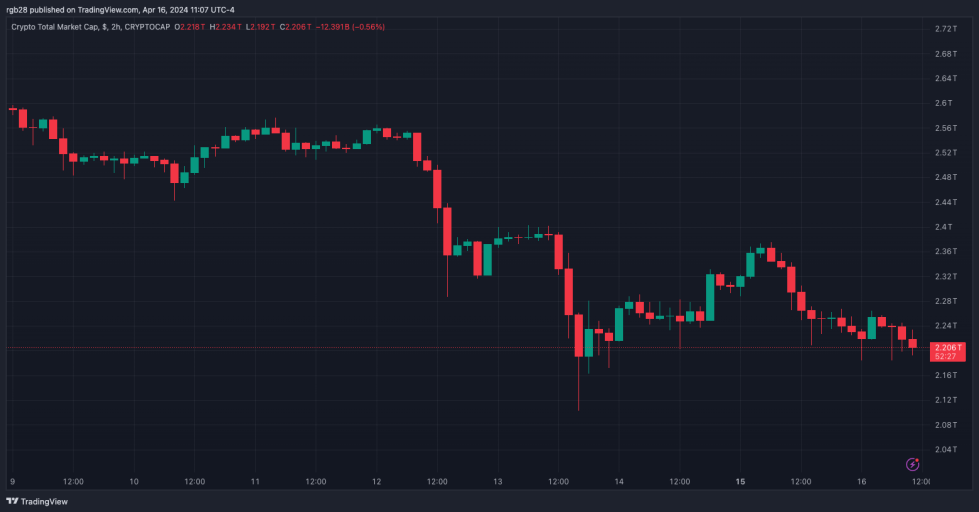Crypto Mining $3.5 Million Scheme: Man Indicted For Alleged “Cryptojacking” Operation
A Nebraska man has been indicted with several criminal charges by the New York authorities for allegedly conducting a $3.5 million crypto scheme. The press release revealed that the accused could face up to 30 years in prison if found guilty. Related Reading: Prepare For The Bitcoin Supply Shockwave: Crypto Guru Warns Of Halving Impact […]

A Nebraska man has been indicted with several criminal charges by the New York authorities for allegedly conducting a $3.5 million crypto scheme. The press release revealed that the accused could face up to 30 years in prison if found guilty.
Man Accused With Fraud And Money Laundering
On Monday, New York authorities announced the indictment of a 45-year-old man for an illegal “cryptojacking” scheme that saw the loss of millions for two cloud computer services providers.
Breon Peace, US Attorney for the Eastern District of New York, members of the Federal Bureau of Investigation (FBI)’s New York Field Office, and a Commissioner of the New York Police Department (NYPD) unveiled their collaboration in the investigation.
The accused, Charles O. Parks III, also known as “CP30”, allegedly ran a “large-scale ‘cryptojacking’ operation” that defrauded two cloud computing providers. According to the press release, the two well-known companies lost over $3.5 million in computing resources due to the scheme.
Authorities have indicted Parks with wire fraud, money laundering, and engaging in unlawful monetary transactions connected to the scheme. The arrest occurred on April 13 in Nebraska, and the detained cryptojacker is scheduled to make his first appearance in the federal court in Omaha on Tuesday, April 16.
If convicted, Parks could face a sentence of up to 20 years in prison due to the charges of wire fraud and money laundering. Additionally, he could face ten years of imprisonment on the charges of unlawful monetary transactions.
Regarding the arrest, NYPD Commissioner Edward A. Caban stated:
This arrest illustrates the power of law enforcement joining forces with the private sector to identify and track down cybercriminals, and to put an end to their sophisticated thievery. While the threat landscape in this space is growing in complexity and depth, the NYPD and our federal partners continue to ably confront malicious actors even as they adopt new tactics.
Cryptojacker Mines $1 Million
Cryptojacking, also known as malicious crypto mining, is a cyberattack where unauthorized parties hijack others’ devices to use their computing resources and power to mine cryptocurrencies without their consent.
Per the announcement, Charles Parks allegedly hijacked two cloud computing providers, stealing millions worth of “powerful computing resources to acquire cryptocurrency.”
The alleged cryptojacking scheme resulted in the accused illegally obtaining $1 million of mined virtual currencies for personal use. The ill-mined cryptocurrencies include Ether (ETH), Litecoin (LTC), and Monero (XMR).
From January through August 2021, Parks created and used various names, corporate affiliations, and email addresses to register numerous accounts in the cloud providers.
The cryptojacker gained access to “massive amounts of computing processing power and storage that he did not pay for.” As part of the scheme, Parks used emails with corporate domains from the companies he operated, MultiMillionaire LLC and CP30 LLC.
Likewise, the accused allegedly tricked the providers into approving improved privileges and benefits for his accounts. These included deferred billing accommodations and elevated levels of cloud computing services.
Seemingly, Parks deflected the providers’ inquiries regarding the “questionable data usage and mounting unpaid subscription balances.”
The proceeds from the hijacking scheme were laundered through several methods. According to the investigation, Parks used crypto exchanges, a Non-Fungible Tokens (NFT) marketplace, online payment providers, and even traditional bank accounts to disguise the money.
Moreover, the now-detained man appears to have structured “various money movements to avoid transaction reporting requirements under federal law.”
Lastly, the report revealed that Parks used the ill-gotten money to make “extravagant” purchases. Luxury cars, jewelry, and first-class traveling accommodations are among the acquisitions made by the defendant.








